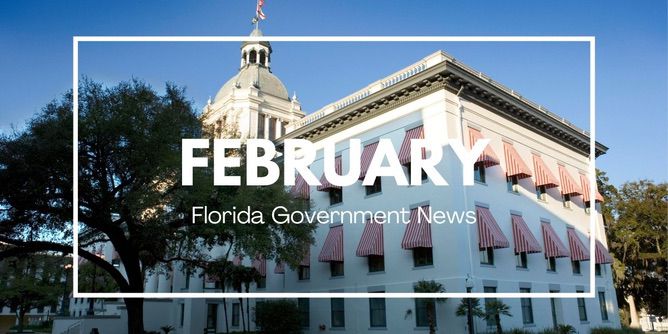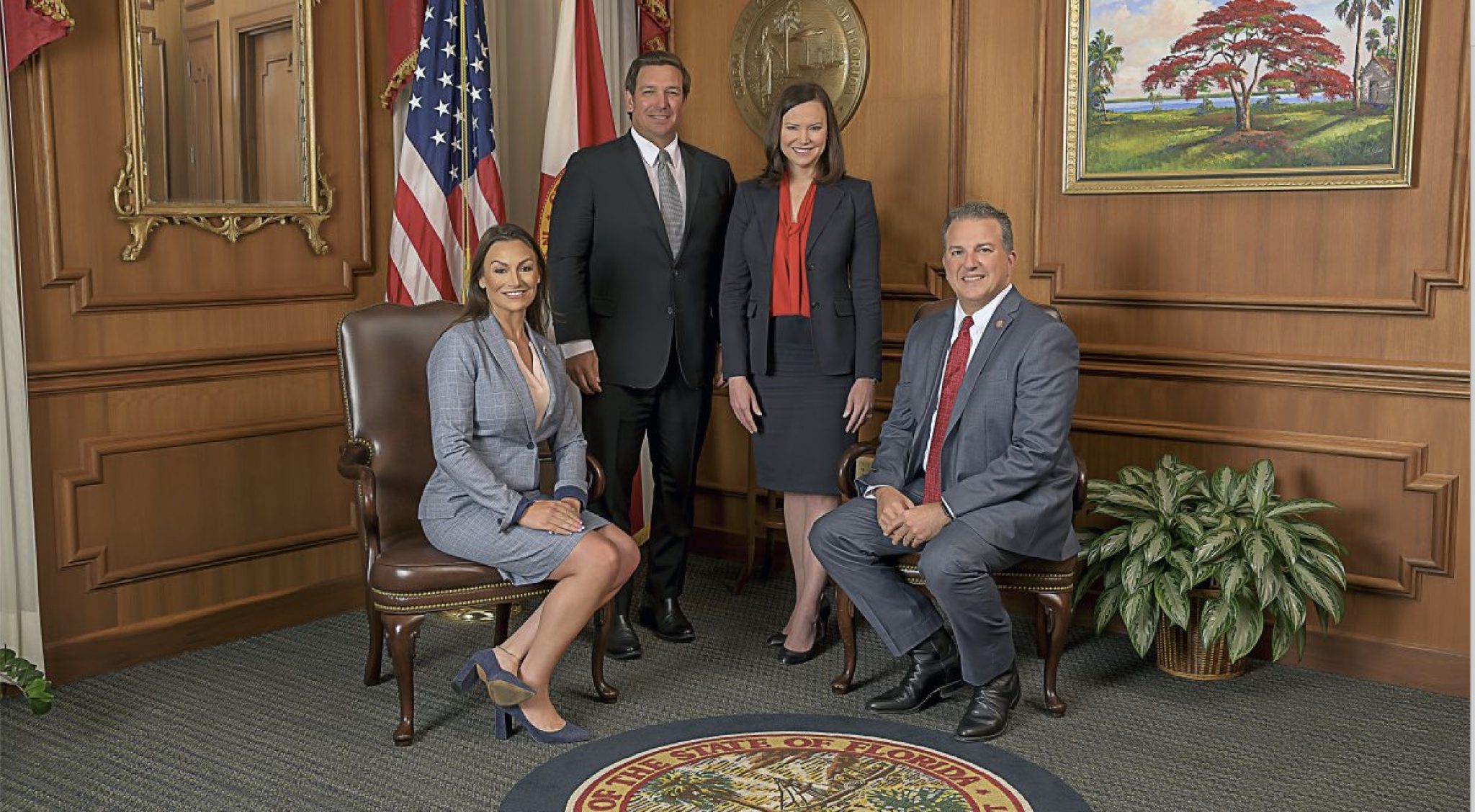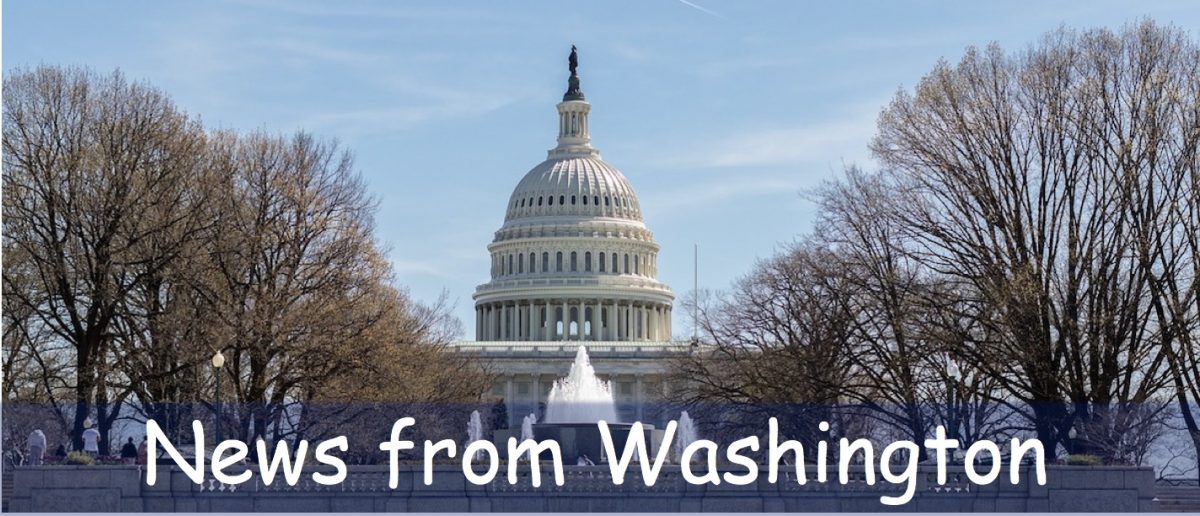
Florida House and Senate committees continued to hold pre-session hearings and votes on proposed measures this month. Gov. Ron DeSantis will give his State of the State address on March 2 and the 60-day 2021 legislative session will officially begin.
In last month’s post, I wrote that the most significant public policy changes likely to come out of the upcoming session are COVID-19 liability protection, new anti-protest (aka anti-mob or anti-rioting) laws, restrictions on large technology companies, and consolidation of the state’s school scholarship (aka voucher) programs.
This month, another area likely to see significant changes — voting and election law — entered the spotlight, not only in Florida but nationwide.
Meanwhile, the topic on most readers’ minds — the state’s rollout of the coronavirus vaccine — continued to be in the news, so I’ll begin this post there.
Vaccine News
State Vaccine Registration Website
Myvaccine.fl.gov is the new state website where full and part-time Florida residents who are eligible to receive the COVID-19 vaccine can register to be contacted when appointments become available at state-supported locations in their area. Since it is a statewide registration website, you should only register once. If you register multiple times, only the last county you register with will be retained in the registration queue, so be sure that county is where you want to be vaccinated.
- Florida residents who want a vaccine can now pre-register online, save their spot. Tampa Bay Times, 1/29/21
Federal Vaccine Sites OK After All
Last month, Gov. DeSantis dismissively referred to the Biden administration’s planned vaccine sites as “FEMA camps,” saying Florida didn’t need help with distribution, it just needed more vaccines. But on February 19, four federal vaccination sites in largely low-income communities of color in Jacksonville, Tampa, Miami and Orlando were announced separately by DeSantis’ office and the White House. The sites, to be staffed largely by federal employees, are expected to reach out to areas that have most struggled to secure vaccines.
- DeSantis reverses course as Florida snags federal vaccine sites. Politico Florida, 2/19/21
Paying to Play?
Florida’s partnership with Publix to distribute the COVID-19 vaccine is “the latest no-bid, coronavirus-related deal by DeSantis that raises concerns about the governor’s office and state agencies creating a perception that major Republican campaign givers will get showered with lucrative state contracts without facing any competition,” writes The Florida Bulldog. The Governor denied the charge and questions about “pop-up” vaccination sites at wealthy communities in Manatee and Sarasota counties. Soon after, he announced that the state would open vaccine sites in six underserved minority communities.
- Publix: Where political giving to DeSantis helped get no-bid COVID vaccine business. Florida Bulldog, 2/18/21
- DeSantis calls criticism of pop-up coronavirus vaccination sites in wealthy, white neighborhoods ‘a joke’. Orlando Sentinel, 2/24/21
- Florida is the only state without a detailed vaccination plan. DeSantis says it’s better that way. News4Jax.com, 2/24/21
- Florida expands vaccine program in minority communities, responding to criticism that such neighborhoods had been previously skipped. WINK News, 2/25/21
- Are ‘politics and personal relationships’ driving Florida’s vaccine distribution? South Florida Sun Sentinel, 2/26/21
2021 Legislative Session
Republican lawmakers are “fast-tracking a slate of politically divisive proposals long sought by the Legislature’s more conservative members, a shift that is underscored by political victories in November that have solidified the GOP grip on the state Legislature,” reports the Miami Herald.
- ‘Flexing of muscles’: Florida GOP pushes conservative bills fresh off election victories. Miami Herald, 2/3/21
- 10 big issues to watch in the 2021 Legislative Session. News Service of Florida via Florida Politics, 2/23/21
Proposed COVID Liability Protection
Businesses are clamoring for protection from coronavirus-related lawsuits, and the House is poised to quickly pass a bill (HB 7) that would shield non-health care businesses from liability. A separate bill (SB 74) to shield health care providers is more slowly making its way through committees.
- Miami-Dade County circuit judge refuses to dismiss COVID-19 case against Publix. News Service of Florida via WUSF Public Media, 2/8/21
- AARP blasts bill seeking to protect nursing homes from coronavirus lawsuits. Tampa Bay Times, 2/8/21; SB 74
- Coalescing coalitions set to clash over Florida COVID-19 business liability bill. The Center Square | Florida, 2/16/21
- House likely to quickly pass COVID business liability bill. WUSF Public Media, 2/24/21
DeSantis’ “Anti-Mob” Bill
In September, Gov. DeSantis announced what he later called the “strongest pro-law enforcement, anti-rioting, anti-looting legislation anywhere in the country.” Critics of the bill have said the measure (HB 1/SB 484) is “destined to pass” because DeSantis, House Speaker Chris Sprowls and Senate President Wilton Simpson have all prioritized it. These were some reactions to the controversial proposal this month:
- Editorial: Could anything be worse than Florida’s Stand Your Ground? Yes, a new, racist legislative proposal. Miami Herald, 2/11/21
- Commentary: Anti-rioting bill helps Florida stand against violence. By Grady Judd, sheriff of Polk County since 2005, via Orlando Sentinel, 2/16/21
- Opinion: Legislature’s anti-protest bill is anti-American. By Patricia Brigham, president of the League of Women Voters of Florida, and Peggy A. Quince, former Florida Supreme Court Justice and current board director of the League of Women Voters of Florida, 2/16/21
Going After Big Tech
On February 2, Gov. DeSantis and legislative leaders announced a proposed Transparency in Technology Act. They explicitly cited the removal of the Parler app from Apple and Google app stores and the permanent ban of former President Donald Trump on various social media platforms as the main motivation behind the bill proposal, wrote Florida Political Review. The law would offer protections to both average social media users and politicians, and promote accountability of technology companies. “With the help of our legislative partners, we’re going to stand together and support Floridians and put a stop to Big Tech’s practice of preying on, censoring and de-platforming consumers,” DeSantis said.
- DeSantis goes after big tech in proposed Transparency in Technology Act. Florida Political Review, 2/19/21
- DeSantis announces second skirmish in ‘big tech’ battle with data privacy bill. Florida Politics, 2/15/21; HB 969
School Voucher Programs
A sweeping school-choice bill (SB 48) that would expand eligibility for Florida’s school-voucher programs, consolidate five existing school-voucher programs into two programs, and allow parents to use taxpayer-backed education savings accounts for private schools and other costs advanced through two of its three assigned committees this month and is almost certain to pass. A Miami Herald editorial called it “the latest and most ambitious effort to privatize public education in Florida.” The League of Women Voters of Florida says:
- Opinion: Don’t be fooled: School voucher bill has a dark side. By Sally Butzin, president of the League of Women Voters of Tallahassee, and Lisa Yurkin, education issues chair for the League of Women Voters of Florida, via Tallahassee Democrat, 2/21/21
Voting & Election Law
Last year, Gov. DeSantis called Florida a model that other states should emulate. But now he says Florida needs “new measures to safeguard the sanctity of Florida elections.” His proposed legislation would:
- Make it illegal for people to possess ballots other than their own and their immediate family;
- Ban “mass mailing” of mail ballots to registered voters, a practice that does not happen in Florida, where voters must request their mail ballot;
- Require mail ballots to be requested each election year, taking away the option to request them for all elections through the next two General Elections, a measure opposed by Florida Supervisors of Elections;
- Prohibit counties from receiving grants from private organizations for “get-out-the-vote” initiatives; and
- Regulate ballot drop boxes.
Florida is among almost three dozen states in which Republicans are looking to roll back voting access in the wake of last November’s election, according to the Brennan Center for Justice.
- Democrats say DeSantis using ‘fear of fraud’ to justify changes in Florida voting laws. South Florida Sun Sentinel, 2/26/21
Other Proposals of Note
- ‘Tremendous fight’ looms in Florida over excluding ‘hard-to-hire’ workers from the minimum wage. Orlando Sentinel, 2/8/21; SJR 854/HJR 1485
- Vacation rental push again looks to take oversight away from Florida cities. Sarasota Herald-Tribune, 2/10/21; HB 219/SB 522
- ‘We want transparency’: Police reform bills target rehiring of tarnished officers. USA Today Network-Florida via Tallahassee Democrat, 2/11/21; SB 992/HB 505
- Senate panel OK’s bill setting up independent office to direct sea level rise research. Florida Politics, 2/15/21; SB 514/HB 315
- DeSantis seeks to clip local authority as lawmakers examine his emergency powers. The Center Square | Florida, 2/25/21
- Republican bill to dismantle Florida’s MCORES toll roads project on fast track. Capital Bureau via Naples Daily News, 2/26/21; SB 100
- House Speaker Chris Sprowls unveils legislation to combat flooding, sea level rise in Florida. The Capitolist, 2/26/21
Executive Branch

Attorney General Ashley Moody, Chief Financial Officer Jimmy Patronis
Since Floridians elect not only the governor but also the three independent Cabinet members that together make up the Executive Branch of state government, it is important to keep an eye on what each of them and the state agencies they oversee are doing. (For more on the Cabinet, see my post Who’s Running for State Cabinet in the August Primaries?)
Governor Ron DeSantis
- Gov. Ron DeSantis says he’ll order flags flown at half-staff to honor Rush Limbaugh. CNN.com, 2/21/21
Attorney General Ashley Moody
- Florida Attorney General warns against posting COVID-19 vaccine cards on social media. WSVN News, 2/3/21
- Ashley Moody: More than $40 million headed to Florida after opioid medication settlement. Florida Daily, 2/8/21
- Ashley Moody, lawmakers unveil legislation to address elder exploitation. Florida Politics, 2/23/21; SB 1344/HB 1041
- After increase in murders, Florida Attorney General nearly doubles reward for tips in homicide cases to $9,500. WMFE.org, 2/24/21
Chief Financial Officer Jimmy Patronis
- Jimmy Patronis deploys bomb squad for Super Bowl LV security. Florida Politics, 2/4/21
- Jimmy Patronis announces measures to bolster the Florida Department of Financial Services during 2021 legislative session. Press Release, 2/23/21; SB 1408/HB 1209
Commissioner of Agriculture Nikki Fried
- Ag commissioner says her agencies will defy DeSantis, not lower flags for Limbaugh. Miami Herald, 2/22/21
Executive Branch Agencies
- Department of Children and Families Secretary Chad Poppell resigns; new leaders named at DCF, Agency for Health Care Administration. The Capitolist, 2/5/21
- Florida’s Commission on Human Relations says it will enforce ruling on LGBTQ+ civil rights. South Florida Sun Sentinel, 2/4/20
- SFWMD awards final $175 million contract to complete its EAA reservoir marshes. TCPalm/Treasure Coast Newspapers, 2/11/21
- State emergency management chief Jared Moskowitz, overseeing the state’s COVID-19 response, resigns. Associated Press, 2/15/21
- Florida Education Commissioner Richard Corcoran extends time for spring school testing, hopes ‘every student’ can take ‘critical’ exams. Orlando Sentinel, 2/15/21
Click HERE for the State of Florida Organizational Chart of the major executive, judicial and legislative branch agencies and programs.
Judicial Branch
Florida’s appeals court justices and judges are initially appointed by the governor, but their initial term of office is only extended with the approval of a majority of voters every six years. See my post On the Ballot: Merit Retention of Florida Judges for more information. In the news this month:
- Charter schools win tax fight. Reversing course from a decision last year, a fiercely divided state appeals court said charter schools are entitled to a cut of the tax dollars Palm Beach County voters approved in 2018 for more-traditional public schools. News Service of Florida via Florida Politics, 2/24/21

The Senate has so far confirmed 10 of 23 members of President Biden’s Cabinet.
Sens. Marco Rubio and Rick Scott voted to confirm Lloyd Austin (Defense) and Avril Haines (Intelligence). Rubio also voted to confirm Antony Blinken (State), Denis McDonough (VA), and Janet Yellen (Treasury), who Scott opposed. Rubio and Scott voted against the nominations of Pete Buttigieg (Transportation), Jennifer Granholm (Energy), Alejandro Mayorkas (Homeland Security), Linda Thomas-Greenfield (UN), and Tom Vilsack (Agriculture). (Source: Congress.gov)
Also this month:
- Marco Rubio, Rick Scott vote to acquit in second Trump impeachment. Florida Daily, 2/15/21
That’s it for Florida government news for February. Next month, we’ll recap the first half of the 2021 Legislative Session.

